FW
The Hong Kong Research Institute of Textiles and Apparel (HKRITA) has signed Memoranda of Understanding (MoUs) with China Textile Academy (CTA) and ANTA Sports Products Group Co Ltd (ANTA) to advance textile innovation and industrial transformation.
The collaboration brings together Hong Kong and mainland China's expertise to accelerate technology transfer, commercialization, and sustainable development. CTA, a leading national research institute, will work with HKRITA to scale laboratory technologies into pilot tests and industry applications. Meanwhile, ANTA, a top sportswear brand, will focus on athlete-driven innovation and sustainable solutions to enhance product performance and competitiveness.
HKRITA CEO Jake Koh highlighted the strategic importance of these partnerships, stating, “R&D requires a multitude of brilliant ideas to succeed. These memoranda create a large pool of innovative exchanges between Hong Kong and the mainland, allowing us to tackle industry challenges and stay ahead of the competition.”
CTA General Manager Ma Yongmei emphasized the institute’s strong innovation chain, covering material development, fibre applications, equipment, and certification. “This collaboration will drive technological breakthroughs and accelerate the integration of R&D with industrialization,” she said.
ANTA Vice President Li Su echoed the excitement, stating, “We look forward to creating an innovation platform with HKRITA to enhance the sportswear industry’s value chain.”
The partnerships will focus on cutting-edge areas, including new fibre materials, functional textiles, smart manufacturing, and sustainable regenerated textiles. By combining research and industrial expertise, the initiatives aim to accelerate product development, strengthen market competitiveness, and promote eco-friendly practices.
Bluesign is accelerating sustainability in footwear with bold initiatives, including expanding its Bluesign Finder database and partnering with Vibram. These efforts support the industry's shift toward cleaner, safer, and more sustainable manufacturing amid growing environmental regulations.
Last week, Bluesign announced a major update to its Bluesign Finder, a digital platform for certified chemical products. The addition of Safe Polymers provides manufacturers with a wider selection of eco-friendly, high-performance materials that meet strict environmental and safety standards. This expansion simplifies access to verified sustainable polymers, helping brands minimize waste, enhance efficiency, and comply with evolving regulations.
Bluesign is also strengthening its footwear sustainability initiative through a partnership with Vibram, a global leader in high-performance rubber soles. Leveraging its input stream management system, Bluesign ensures that harmful chemicals are eliminated at the start of production, reducing environmental impact while maintaining strict safety standards.
The collaboration aligns with stringent EU regulations, including the EU Green Deal, setting a science-backed blueprint for responsible footwear manufacturing. By integrating sustainability at the foundation of production, Bluesign and Vibram are driving a major industry shift toward cleaner, regulation-compliant processes.
With these advancements, Bluesign is reinforcing its leadership in sustainable chemistry, helping footwear brands transition to a more responsible future.
Being held from February 13-15, 2025, at the Cairo International Convention Centre in Nasr City, the 76th edition of Egypt’s leading clothing and textile exhibition, Cairo Fashion & Tex features 750 Egyptian and international brands.
The event is being held under the guidance of the Ministries of Industry and Investment and showcases the latest industry trends and innovations. Organized by Pyramids Groups for International Exhibitions and Conferences, the exhibition is supported by the Ready-Made Garments and Textile Chamber It is Egypt’s largest fashion and textile industry event and attracts over 30,000 visitors annually.
Cairo Fashion & Tex provides a valuable opportunity to Egyptian companies to showcase their products while staying updated on global market trends, emphasizes Mohamed El-Sherif, Chairperson, Pyramids Group. The exhibition plays a vital role in fostering collaboration among companies, facilitating trade, and securing export and investment deals, he highlights.
According to El-Sherif, this year’s event has drawn significant participation from exhibitors representing Egypt, Turkey, China, Germany, Italy, and other countries. He expects the number of export deals secured by Egyptian companies to increase to approximately $200 million from the $60 million in agreements signed during the previous edition.
Pyramids Group also plans to launch several upcoming exhibitions in 2024, including Egy Fashion in April, which will feature over 500 brands and attract 1,500 international buyers, and Syria Fashion & Tex, set to be held in Syria at the end of August.
Mohamed Atef, Director, Pyramids Group, notes, the strong participation of exhibitors, visitors, and international buyers reflects their growing confidence in Egypt’s textile industry. The company successfully coordinated the attendance of a 1,000-member international buyers’ delegation from Bahrain, Iraq, Jordan, Lebanon, Morocco, Oman, Palestine, Saudi Arabia, and Yemen, he confirms.
The exhibition will boost Egypt’s textile and apparel exports, thus positioning the country as a regional hub for the industry, with over 30,000 local and international visitors expected to attend the event, Atef affirms.
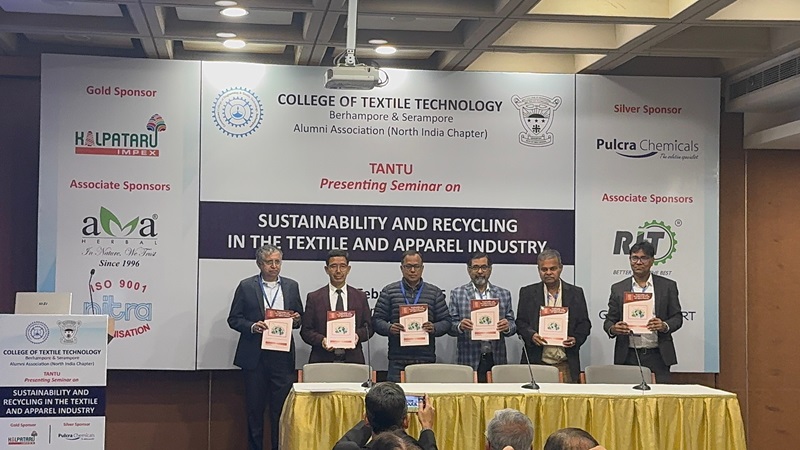
TANTU Seminar at India International Centre brought together experts, policymakers, and industry leaders to address sustainability and recycling in the textile and apparel industry. The event focused on waste reduction, circular economy practices, product life cycle analysis, and sustainable manufacturing.
Eight distinguished speakers shared insights on sustainable practices, technological advancements, and policy initiatives shaping the industry’s future.
Ashok Kumar, Deputy Director General, Bureau of Energy Efficiency, New Delhi, delivered the keynote address, emphasizing immediate action on sustainability. He reminded attendees of the Paris Agreement’s goal to limit global warming to below 2 degrees Celsius and achieve net-zero emissions by mid-century. He stressed that the time for research and discussion had passed, and the industry must act now.
Innovations in recycling and performance textiles
Gaurav Seth, Head of Strategic Partnership at Indo-German Yarn and Fibre LLP, highlighted the challenges of recycling technical textiles. He discussed successful methods for re-engineering performance fibers like para-aramid, meta-aramid, and carbon fibers. These recycled products are now being supplied to manufacturers, reducing waste and environmental impact.
Ajitesh Upadhyaya, Senior Section Expert at BEE India, outlined India’s Carbon Market Framework, Carbon Credit Trading Scheme (CCTS), and its alignment with international carbon tax regulations. He detailed how the Perform, Achieve, and Trade (PAT) scheme is helping the textile sector achieve energy efficiency goals.
Compliance and the role of LCA
Chinky Tyagi Khare of Green Story spoke about sustainability regulations and product life cycle assessment (LCA). She warned that manufacturers risk losing business and damaging their reputation if they fail to provide environmental footprint data, as responsibility shifts up the supply chain. Green Story’s tools are aiding companies in assessing and improving their sustainability credentials.
Independent sustainability consultant Pankaj Kapoor discussed climate change's impact on the textile industry. He outlined key sustainability metrics and ESG regulatory deadlines, emphasizing that the industry must prepare for stricter compliance by 2025.
Abhijit Majumder of IIT Delhi shared research on post-consumer textile recycling. His team has successfully regenerated yarns for fully fashioned apparel, demonstrating the potential for closed-loop recycling in fashion.
Industry’s role in sustainability
Sutanu Goswami, Senior General Manager at TUV SUD South Asia, urged the fashion industry to rethink its environmental impact. “By adopting responsible sourcing, ethical production, and recycling initiatives, we can move towards a more sustainable future,” he said.
Sanya Arora, Engagement Officer at CDP, emphasized the growing need for disclosure, particularly for SMEs. Transparency in environmental reporting is now a business necessity, she noted.
Arindam Basu, Director General at NITRA, and Lalit Goswami, Senior Scientific Officer at NITRA, presented research on optimizing process parameters for using recycled cotton in yarn production. They noted limitations in blending recycled cotton, with a maximum of 20 per cent for ring spinning and 30 per cent for rotor spinning to maintain quality.
The seminar concluded with a collective commitment from stakeholders to improve transparency, invest in recycling infrastructure, and support policies that drive sustainability. The discussions reinforced the urgent need for industry-wide collaboration to create a greener, more responsible textile sector.
For the third consecutive year, Turkey’s synthetic or artificial staple fiber yarn exports declined by 4 per cent to 106,000 tons in 2024. While overall export trends remained relatively flat, synthetic yarn exports had increased by their highest levels of 36 per cent Y-o-Y to 131,000 tons in 2021. Since 2022, however, export growth has struggled0 to regain momentum.
In value terms, in 2024, Turkey’s synthetic yarn exports declined to an estimated $605 million. Similar to volume, the overall export trend has been relatively flat. A significant growth spurt occurred in 2021 with a 58 per cent increase, reaching $759 million in 2022. However, exports have remained lower from 2023 to 2024.
The top destinations for Turkey's synthetic yarn exports in 2024 included the United States with exports of 13,000 tons, Italy with 13,000 tons exports, and Russia with 9,000 tons, Together, these three countries constituted 31 per cent of total exports. These were followed by Belarus, the UK, Georgia, Iran, Spain, and Germany, accounting for an additional 28 per cent.
Over the past decade, spanning 2014-2023, Georgia experienced the most significant export growth rate of +79.6 per cent, while other major destinations saw more moderate growth. In value terms, the leading markets were the United States ($100 million), Italy ($79 million), and the UK ($45 million), making up 34 per cent of total exports. Georgia again led in value growth with a CAGR of 82.5 per cent, with other destinations showing more modest increases.
Yarn (other than sewing thread) of synthetic staple fibers, not put up for retail sale, dominated exports at 69,000 tons. This category significantly outweighed yarn (not sewing thread) of man-made staple fibers, put up for retail sale. From 2014 to 2024, the volume of exports in this leading category increased by 3.0 per cent annually. Exports of other categories showed varying growth. For instance, exports of yarn, man-made staple fibers, put up for retail sale increased by 2.0 per cent annually, and exports of yarn (other than sewing thread) of artificial staple fibers, not put up for retail sale increased by -11.1 per cent per year.
In value, the top exported yarn types included yarn (other than sewing thread) of synthetic staple fibers, not put up for retail sale ($346 million); yarn (not sewing thread), of man-made staple fibers, put up for retail sale ($211 million); and yarn (other than sewing thread) of artificial staple fibres, not put up for retail sale ($48 million). The leading category saw the highest value growth (CAGR of +2.9 per cent from 2014-2024.
The average synthetic yarn export price in 2024 was $5,872 per ton (FOB, Turkey), a 2.1 per cent decrease from the previous year. While prices remained relatively flat overall, 2021 saw a 16 per cent increase in prices, peaking at $5,999 per ton in 2022 before declining slightly. Prices varied by destination, with the US having the highest price ($7,688 per ton) and Uzbekistan the lowest ($3,481 per ton). Brazil saw the highest price growth from 2014-2023 (+10.5 per cent), while other major destinations experienced more moderate growth.
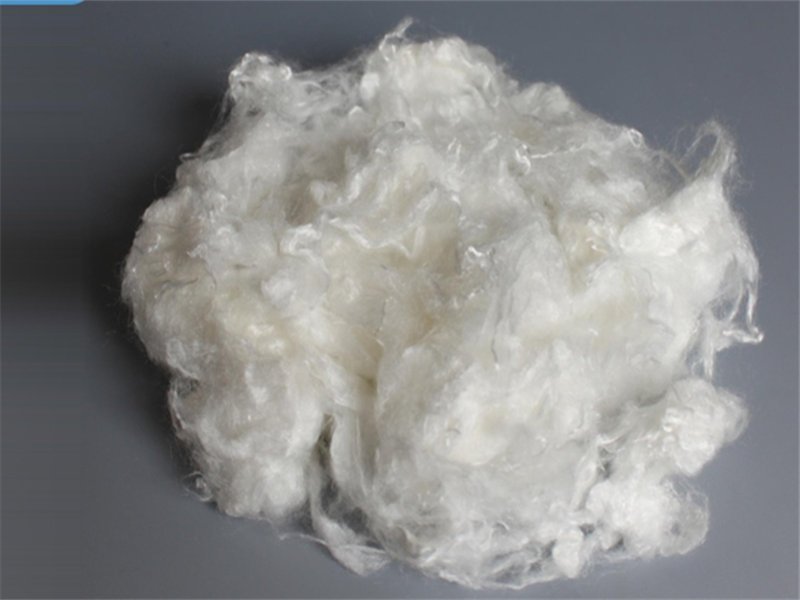
In January, the global Viscose Staple Fiber (VSF) market experienced significant price volatility, causing disruptions across the textile industry and raising concerns about supply chain stability. This rise in prices, observed particularly in leading producing countries such as China, India, and Austria, has been fueled by several interrelated factors.
Drivers of price rise
The rise in VSF prices in early 2025 can be attributed to a convergence of factors. Following the holiday season, a resurgence in demand from the textile sector has intensified, creating a strong upward trend in prices. This heightened demand coincides with escalating costs of raw materials, primarily wood pulp, which have surged due to supply chain bottlenecks and increased demand from various industries. Moreover, the energy-intensive nature of VSF production has pushed up costs amid global energy price fluctuations.
Impact on the textile supply chain
The ripple effects of rising VSF prices are palpable throughout the textile supply chain. Garment manufacturers, grappling with increased raw material costs, are passing these expenses onto consumers through higher prices. This price hike risks dampening consumer demand for textiles, potentially impacting the broader industry.
Demand-supply dynamics
The current rise in demand for VSF has outpaced existing production capacities, creating a notable demand-supply gap. While some producers are poised to expand their capacities in the near future, these efforts may take time to materialize, further straining supply chains.
Regional focus, leading producers
China: As the largest global producer of VSF, China's production policies and environmental sustainability efforts have influenced market dynamics, including recent production cuts contributing to price increases.
India: Another significant producer, India faces competitive pressures exacerbated by recent price hikes, impacting local textile manufacturers.
Austria: Known for its high-quality VSF production, Austria continues to maintain a premium market position, driven by sustainable production practices.
Market analysis, January insights
United States: VSF prices in the US have steadily risen, buoyed by robust demand from apparel and textile sectors. Policy initiatives supporting domestic manufacturing and sustainable practices are expected to further bolster demand.
Germany: The German market reflects similar trends, with prices climbing amid anticipation of future demand growth.
Asia-Pacific (APAC) and China: China's VSF prices have seen significant increases driven by robust domestic demand and government support for market expansion.
The complex interplay of post-holiday demand spikes, supply chain challenges, and regional production dynamics underscores the interconnected nature of the global VSF market. While short-term uncertainties persist, the long-term outlook remains positive, driven by increasing demand for sustainable textile fibers. Looking ahead, planned capacity expansions may provide relief, potentially stabilizing prices in the latter half of 2025.
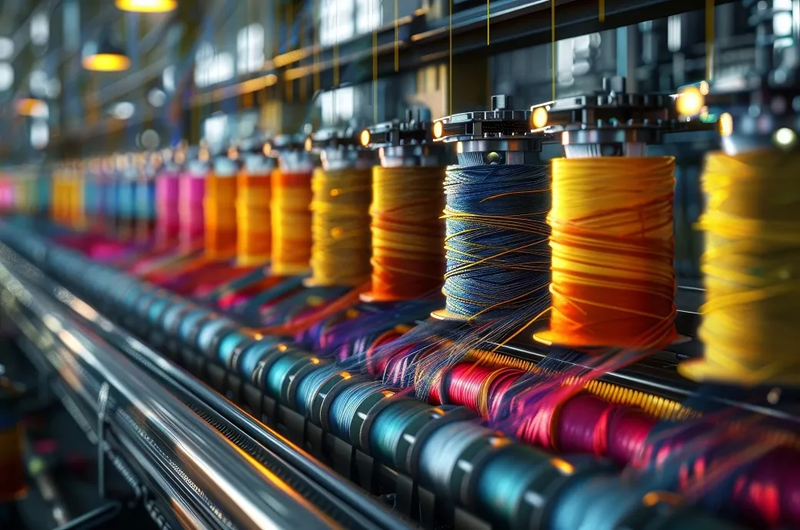
In today's consumer-driven world, the textile industry stands as a paradoxical cornerstone of the economy. While clothing and fabrics adorn millions, their production and disposal leave an indelible mark on our planet. Annually, a almost 92 million tonnes of textiles find their way into landfills or incinerators worldwide, revealing a looming environmental catastrophe. This crisis is not just about sheer volume but also the harmful chemicals leached into our ecosystems, perpetuating environmental degradation.
The scale of the problem
According to recent data from the World Economic Forum, North America, Europe, Asia Pacific, and the rest of the world collectively generate monumental amounts of textile waste. Despite the potential for recycling nearly all clothing and textiles, global recycling rates remain dishearteningly low, varying significantly across different regions.
Table: Global textile waste regionwise
|
Region |
Estimated textile waste generation (mn tons) |
|
North America |
13.1 |
|
Europe |
11.3 |
|
Asia Pacific |
40 |
|
Rest of the World |
27.6 |
(Source: World Economic Forum, 2023)
Technological advancements driving change
Mechanical recycling: Traditionally, this method involves shredding and respinning fibers to create new yarns. While effective for natural fibers like cotton and wool, it often results in lower-quality fibers suitable for applications such as furniture stuffing and insulation.
Chemical recycling: Emerging as a frontrunner, chemical recycling employs solvents or enzymes to break down textiles into their original building blocks, enabling the creation of high-quality fibers akin to virgin materials. Companies like Worn Again and Evrnu are pioneering this approach, aiming for a closed-loop system that drastically reduces water and energy consumption compared to traditional production methods.
AI-Powered sorting: Essential for efficient recycling, AI technologies are automating the labor-intensive task of sorting textiles by fiber type and color. Innovations by companies like Rester are improving accuracy and scalability, though challenges persist in handling complex blends and heavily soiled fabrics.
Limitations and challenges
Despite technological progress, recycled fibers often face limitations such as reduced strength, color vibrancy, and performance characteristics compared to their virgin counterparts. Factors like polymer degradation in chemical recycling and difficulties in achieving consistent quality for certain materials underscore the ongoing need for research and development.
Table: Limitations of recycled fibers
|
Technology |
Fiber Type |
Limitations |
|
Mechanical |
Cotton |
Reduced fiber length, strength, and dyeing potential |
|
Mechanical |
Wool |
Reduced fiber length and potential for felting |
|
Chemical |
Polyester |
Potential for polymer degradation with repeated recycling |
|
Chemical |
Nylon |
Challenges in achieving consistent quality and color |
(Source: Textile Exchange, 2023)
Overcoming hurdles to a circular economy
One of the most significant obstacles is contamination: textiles are frequently blended with non-recyclable components like zippers and dyes, complicating the recycling process. Moreover, the lack of dedicated recycling facilities and widespread consumer awareness further hinders progress towards a truly circular textile economy.
The promising future of textile recycling
Despite these challenges, the textile recycling market is poised for substantial growth, projected to reach $13.7 billion by 2026. This exponential rise reflects a growing commitment from brands, consumers, and governments to embrace sustainable practices and reduce environmental impact.
As we navigate towards a sustainable future, the evolution of textile recycling represents a pivotal opportunity. By harnessing technological innovations, fostering consumer awareness, and enhancing recycling infrastructure, we can transform today's waste into tomorrow's resources. The path to a circular economy requires collaboration and determination from all stakeholders—brands, consumers, governments, and innovators alike—to ensure a thriving and resilient textile industry for generations to come.
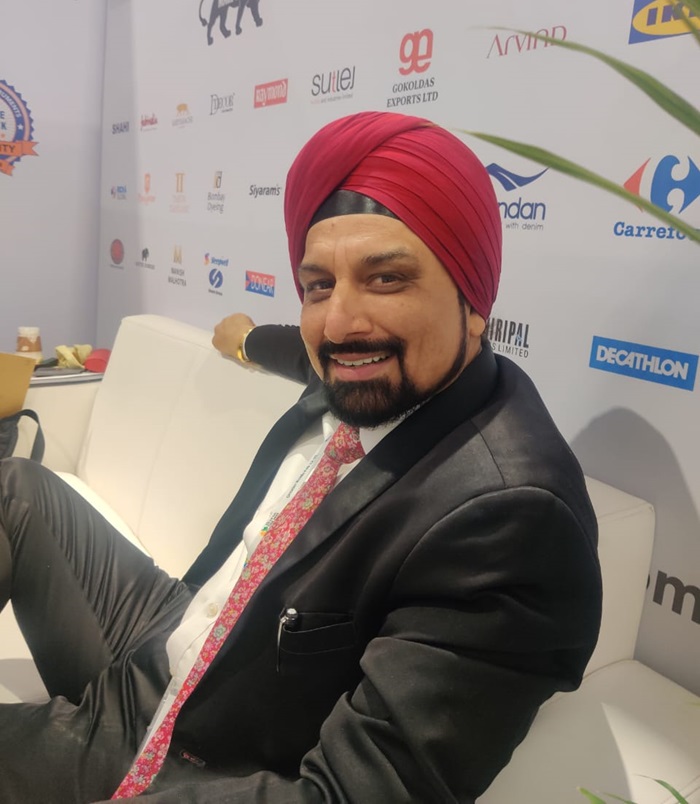
In the bustling world of textiles, where precision and quality are paramount, the integration of artificial intelligence (AI) into laboratory instruments is revolutionizing the industry. Manjit Singh Saini, the Managing Director of Paramount Scientific Instruments, stands at the forefront of this transformation, leading the charge with innovative solutions that promise to enhance efficiency and accuracy in textile testing.
As the textile industry grapples with the challenges of quality assurance, Saini emphasizes the significance of AI in simplifying complex processes. One of the groundbreaking instruments developed under his leadership is the GSM AI, designed to measure the grams per square meter (GSM) of various fabrics - woven, knitted, or non-woven. This state-of-the-art device eliminates the need for traditional methods involving cutters and weighing balances, which are not only time-consuming but also prone to human error. Instead, the GSM AI utilizes high-resolution cameras and advanced image processing algorithms to deliver instant and precise measurements.
Saini articulates a vision where AI does not merely augment human capabilities but transforms the very nature of textile testing. "AI is the next future of human generation," he asserts, highlighting its potential to simulate human intelligence in machines capable of problem-solving, reasoning, and learning. This shift allows professionals in the textile sector to focus on strategic decision-making rather than mundane tasks, ultimately fostering a more innovative and productive work environment.
Despite the promising advancements, Saini acknowledges the concerns surrounding AI adoption, particularly regarding costs and job displacement. He reassures stakeholders that while the initial investment in AI-based equipment may be higher, the long-term savings—stemming from reduced material waste and maintenance costs—far outweigh the expenses. The GSM AI, for instance, not only saves on blades and pads but also enhances safety by minimizing the risks associated with traditional cutting tools.
The textile industry, especially post-pandemic, is witnessing a renewed focus on cost-effectiveness and operational efficiency. Saini's commitment to integrating AI into textile lab instruments aligns perfectly with this trend, promising a future where quality control is not just a necessity but a seamless part of the production process. As Paramount Scientific Instruments continues to innovate, the role of AI in textiles is set to expand, paving the way for smarter, safer, and more efficient laboratory practices.
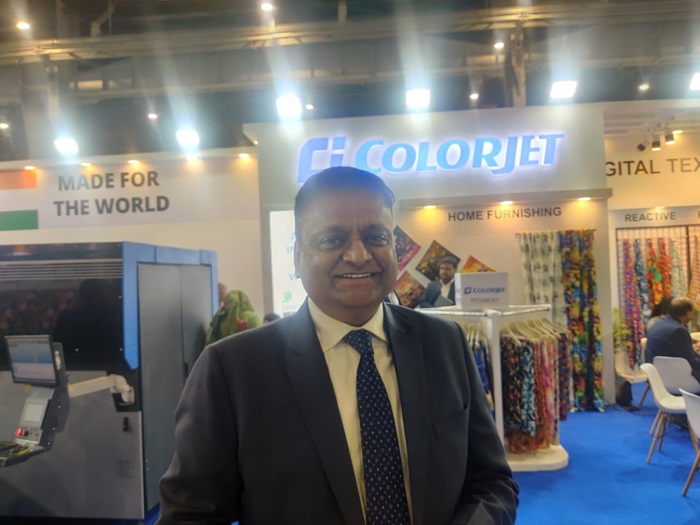
In the heart of textile hub, where the aroma of cotton mingled with the rhythmic clatter of looms, Madhu Sudhan Dadu (MS Dadu), Chairman of Colorjet India Limited, wasn't just building a business; he was weaving a new future for Indian textiles. His journey is a testament to the transformative power of the 'Make in India' initiative, a movement designed to establish India as a global manufacturing powerhouse.
A decade ago, Dadu recognized a critical weakness in India's textile industry. Despite being a global textile giant, India relied heavily on imported machinery. This dependence not only drained resources but also stifled innovation. Dadu, a technologist at heart, was determined to change this narrative.
The initial years were challenging. Government policies were not always conducive to domestic manufacturing, and the textile machinery sector was underdeveloped. Skepticism was rife, with many in the industry preferring established European brands. Undeterred, Dadu believed in India's potential – its skilled workforce, technical expertise, and abundant resources.
With a small team of dedicated engineers, he embarked on developing digital textile printers, a nascent technology with immense global potential. This transition from traditional to digital methods represented a revolution in textile processing. Dadu's machines promised enhanced efficiency, superior quality, and cost-effectiveness, and he was determined to prove their mettle.
The team faced numerous hurdles. The market was saturated with imported machines, and the perception of Indian products as inferior posed a significant challenge. Dadu knew that to succeed, they had to not only match but surpass the quality of their European competitors. He invested heavily in research and development, ensuring his products were both innovative and tailored to the specific needs of Indian manufacturers.
Slowly, their efforts began to bear fruit. As the first machines rolled out of the factory, Dadu's confidence grew. He showcased their capabilities at trade fairs, demonstrating the efficiency and quality of his digital printers. The response was overwhelmingly positive. Customers began to appreciate the value of supporting local manufacturing, and word spread rapidly.
Dadu understood that success wasn't just about sales; it was about providing comprehensive solutions. He prioritized customer support, ensuring every client received the assistance needed to optimize their operations. This commitment to service distinguished Colorjet from its competitors, building loyalty and trust.
As the 'Make in India' initiative gained traction, the government began to recognize the importance of the textile machinery sector. Policies started to evolve, favoring local manufacturers and promoting the use of Indian-made machines. Dadu seized this opportunity, advocating for a level playing field where Indian products could compete fairly. He became a voice for other manufacturers, urging the government to address the inverted duty structure and incentivize domestic production.
Over time, Colorjet India Limited became synonymous with quality and innovation in the textile machinery industry. Dadu's vision of a self-reliant textile sector was becoming a reality. The company not only flourished but also inspired a new generation of entrepreneurs to explore the vast potential of manufacturing in India.
Reflecting on his journey, Dadu often shared his mantra: "Innovation is born of necessity, and success is built on perseverance." His story is not just about machines; it's about a vision for a self-reliant India, where local manufacturing can compete with the best globally.
Madhu Sudhan Dadu's legacy extends beyond the machines he created. It's embodied in the spirit of 'Make in India' that he championed – a spirit of resilience, innovation, and unwavering faith in the potential of Indian manufacturing.
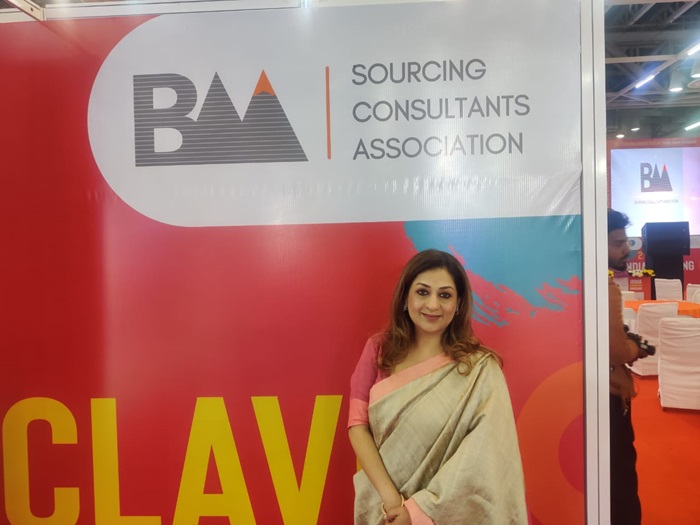
The global fashion industry is recalibrating its compass, recognizing the vibrant and diverse opportunities beyond China. While China remains a supplier, apparel brands are increasingly being attracted by the unique potential of other suppliers. This shift is evident in the strategic initiatives and impressive growth figures reported by leading fashion brands.
Shifting sourcing patterns
Traditionally, China has been the dominant player in global apparel sourcing, holding a significant market share. However, their dominance is gradually decreasing. World Trade Organization (WTO) and McKinsey estimates indicate China's share, which was once over 40 per cent, is now reducing, though it still remains the largest single sourcing nation. Concurrently, other nations are seeing increased shares. While data can vary based on the specific product category, some general trends that have emerged are:
China: While still dominant, its share is decreasing. Estimates place it somewhere between 30-35 per cent currently (though this can fluctuate), down from higher figures in the past.
Bangladesh: Remains a significant player, particularly in basic garments, often estimated to hold a 6-8 per cent share or more.
Vietnam: Has seen growth and is often cited as a key beneficiary of the ‘China Plus One’ strategy, potentially holding a 5-7 per cent share.
India: Is also gaining traction, with estimates placing its share anywhere from 4-6 per cent and growing, though realizing its full potential is still a work in progress.
There are several reasons for the changes in apparel sourcing. Geopolitical factors are a major reason as trade tensions and political instability in certain regions are pushing buyers to diversify their sourcing to reduce risks. Moreover, rising wages in traditional manufacturing hubs like China are making other countries with lower labor costs more attractive. Also, the COVID-19 pandemic exposed vulnerabilities in global supply chains, prompting buyers to seek more diversified and resilient sourcing options. Growing consumer awareness of environmental and social issues is pushing brands to source from manufacturers with sustainable practices. Add to it automation and digitalization that are changing the dynamics of manufacturing, making it possible for some countries to become competitive even with slightly higher labor costs.
India in this changing scenario
India is well-positioned to capitalize on these shifting sourcing patterns. To its advantage it has a large pool of skilled labor, particularly in textile and garment manufacturing. India also has a long history in textiles and a well-developed manufacturing ecosystem, from raw materials to finished garments. The government has undertaken various initiatives to promote textile and garment exports, such as production-linked incentive (PLI) schemes and streamlined regulations. Also, Indian manufacturers are increasingly adopting sustainable practices, aligning with the growing demand for eco-friendly and ethical products.
Tanya Bhatia, General Secretary, Sourcing Consultants Association (BAA) notes, "When they talk of sustainability the global buyers look at India as their partner for sustainable products and they are willing to hand hold us and you know nurturing us and taking us all the way forward. They do not look at China for a sustainable product..." She further adds, "...India is moving far ahead of the anticipated rate and global partners look at India and let me tell you that most other Asian countries are not even providing these measures to their customers. It's only India which is on the forefront and whenever they look at a sustainable requirement, they reach out to India." Bhatia also emphasizes the potential for growth, stating, "...we are rather optimistic about having our fair share of global space in comparison to China," implying that India is seen as a viable alternative and is poised to gain market share. Regarding sourcing strategies, Bhatia observes, "The China plus one policy is going to benefit India..." highlighting how this diversification strategy positions India as a prime beneficiary.
Insights from ‘The State of Fashion 2025’ report
Latest ‘The State of Fashion’ report, by McKinsey & Company and Business of Fashion (BoF), offers valuable insights into the apparel industry's future. The report emphasizes the need for brands to build more resilient and agile supply chains. This aligns with India's strengths as a diversified sourcing destination, reducing reliance on single-source manufacturing. The report often highlights the need for companies to diversify their manufacturing footprint and build in redundancies.
The report consistently underscores the growing importance of sustainability. This is a critical area where India can excel, given its increasing focus on eco-friendly practices and ethical labor standards. Consumers are more and more demanding transparency and traceability. While not always explicitly stated as ‘nearshoring’, the report acknowledges the trend towards more regionalized supply chains, with brands seeking to source closer to their end markets. This can benefit India, especially for brands serving markets in Europe and other parts of Asia. The report also stresses the importance of digitalization and technology adoption across the value chain. This is a crucial area for India to focus on to enhance its competitiveness. Automation, data analytics, and other digital tools are becoming increasingly important.
Impact of China Plus One and Bangladesh Plus One
Meanwhile, the China Plus One strategy has significantly benefited countries like India, Vietnam, and Bangladesh. While Bangladesh remains a major player due to its low labor costs, India is gaining traction by offering a more comprehensive manufacturing ecosystem, skilled labor, and a focus on sustainability. The Bangladesh Plus One strategy, while relevant, is less impactful on India as it primarily focuses on diversifying away from Bangladesh within a similar cost-sensitive segment. India is aiming for a more diversified product range, including higher-value garments.
New opportunities for India
The changing dynamics of apparel sourcing has created many new opportunities for India.
Increased export share: India can significantly increase its share of global apparel exports by attracting buyers looking for alternative sourcing destinations.
Value addition: India can move up the value chain by focusing on higher-value garments, design capabilities, and brand building.
Technological advancement: The adoption of advanced manufacturing technologies can further enhance India's competitiveness.
Sustainable manufacturing: India can become a leader in sustainable apparel manufacturing by promoting eco-friendly practices and ethical labor standards.
But despite these opportunities, India also faces challenges. Inadequate infrastructure, such as transportation and logistics, hinder efficient manufacturing and exports. Similarly, while India has a large workforce, there is a need to address skill gaps in certain areas, such as design and technology. India faces competition from other countries with lower labor costs or specialized manufacturing capabilities. And complex regulations and bureaucratic processes can create hurdles for businesses.
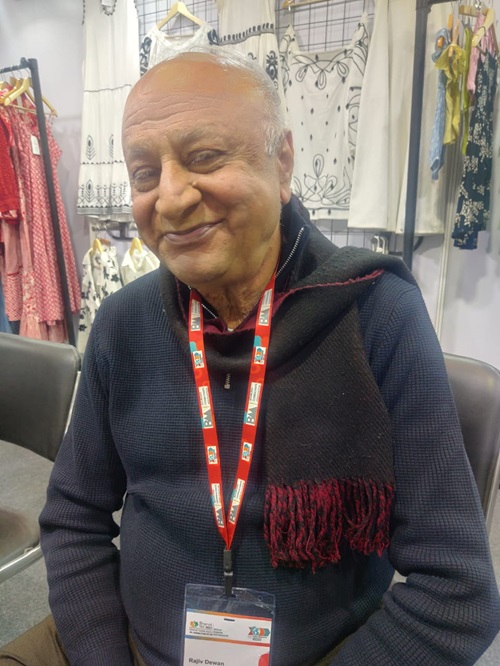
Rajiv Dewan, ex President, GEAR, Jaipur (Ma’am Arts) shares his perspective on the export outlook: "See the trend for exports is going to be very, very healthy, you know, coming year onwards, I mean, what mid early 26, you know, the summer of Europe and America is going to be super hit." He affirms, "And going is very good for the exports. There's no doubt about it." Dewan connects export growth to broader economic benefits: "So exports, if they pick up, if they come up well, automatically the make in India will do good. You know, we are going to employ more people, more infrastructure, more development, more expansion." He also suggests a geopolitical advantage for India: "See what I feel is America has got very less options and they will definitely definitely be supporting India. Because China that chaos is there, that thing is there, so America will support India, this is what I feel."
Government support and recent initiatives
The Indian government has recognized the potential of the textile and apparel sector and has implemented several schemes and initiatives to boost its growth and competitiveness.
Production Linked Incentive (PLI) Scheme for Textiles: This scheme offers incentives to manufacturers of specific textile products to enhance domestic manufacturing and attract large investments. The PLI scheme has been a significant boost, attracting investment and aiming to increase production and exports. For example, several large textile companies have announced investments under this scheme.
National Textile Policy 2000: This provides a framework for the development of the textile industry, focusing on modernization, technology upgradation, and skill development.
Scheme for Integrated Textile Parks (SITP): This scheme aims to create world-class infrastructure for textile units, including dedicated zones for manufacturing, processing, and ancillary services.
Focus on Skill Development: Various programs are being implemented to address the skill gaps in the textile and apparel sector, ensuring a readily available workforce. Initiatives like the Pradhan Mantri Kaushal Vikas Yojana (PMKVY) play a role here.
The moot point is that the future of apparel sourcing is very promising for India. With the right policies, investments, and initiatives, India can solidify its position as a leading global sourcing hub. The focus on sustainability, technology, and value addition will be crucial for long-term growth and competitiveness.
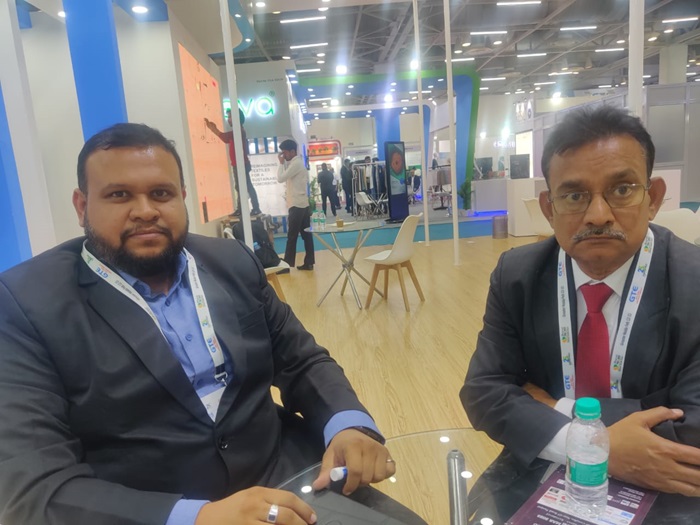
Sainathan R, Director, Eurotech Technical Solutions, highlights India's traditional strengths: "India has always been a traditional market for cotton. It is a cotton based market and for almost 70 to 80 years now, we know how to dye cotton, how to process cotton, and how to perfectly make a good cotton garment." He also points out a key advantage: "India has got one advantage of labour. We are the highest population in India where our labour is going to help us." However, Sainathan also identifies challenges: "The global shift has now gone towards synthetic fabrics. So the demand for cotton is getting lower, the demand for synthetic fabrics is getting higher. India as of now is very much limited in technology and knowledge about how to handle this kind of new age fabrics which is for performance, which is for technical textiles and other things which are more synthetic based." He further notes, "Also the initiative to invest in new machineries, upgrade on new machineries, that is getting little bit into a situation where they are not confident enough how much order will come to India." Sainathan emphasizes the impact of taxation and import duties.












